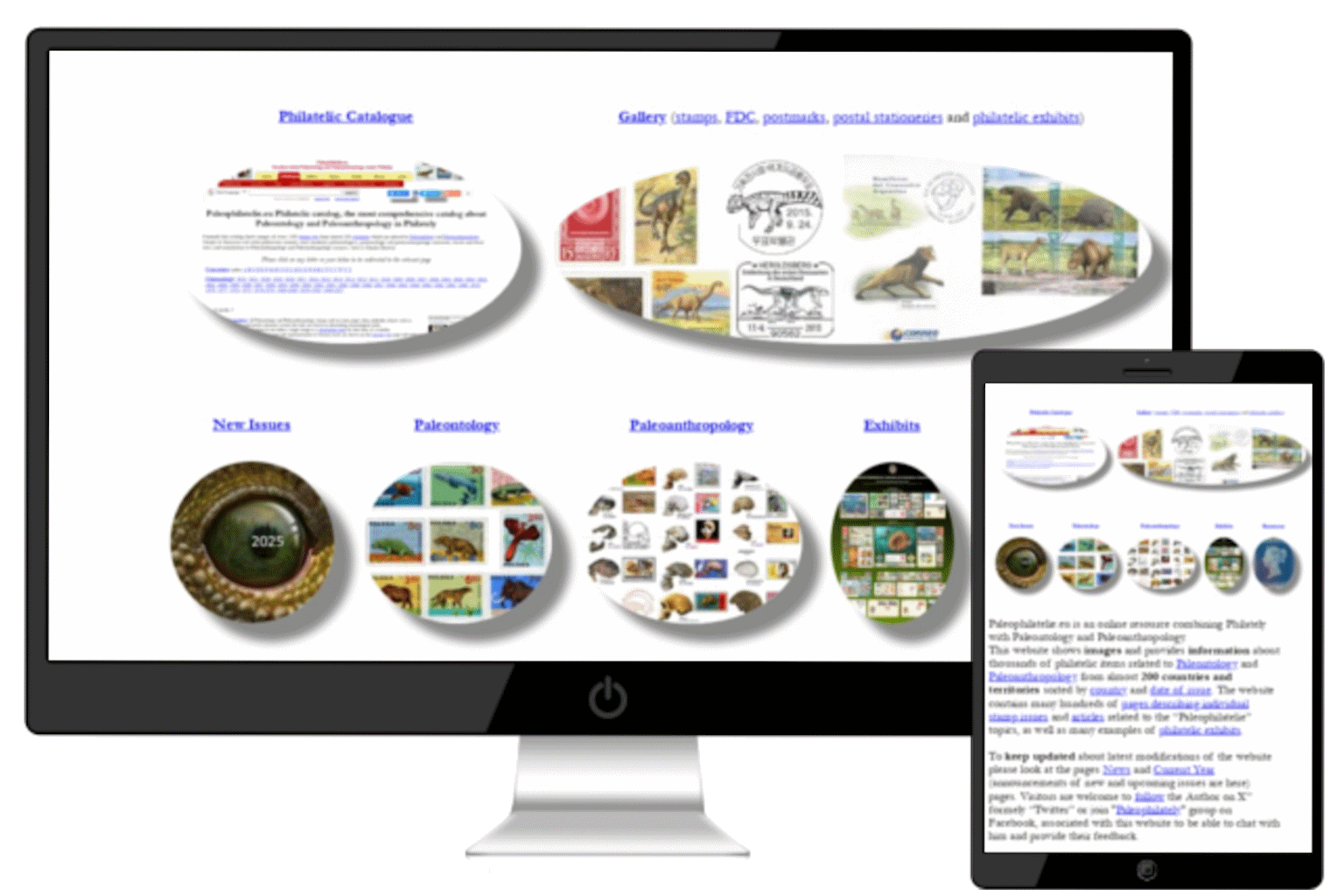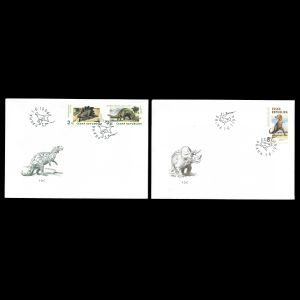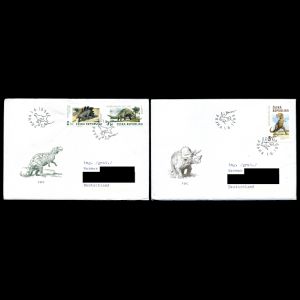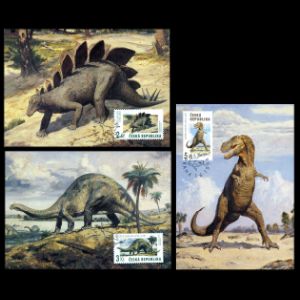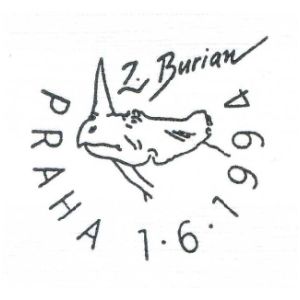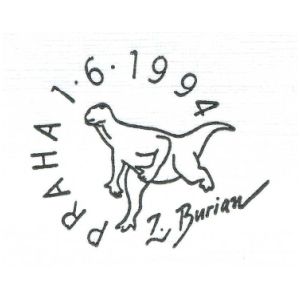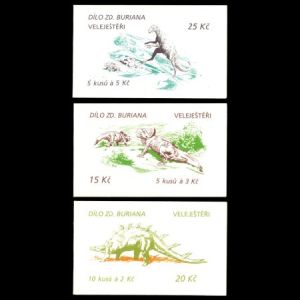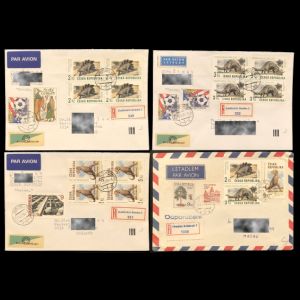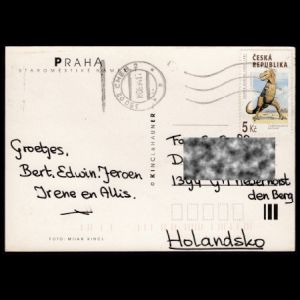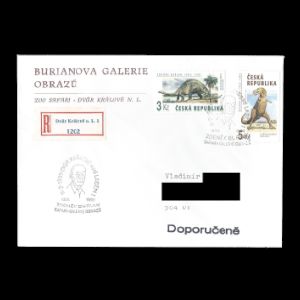Czech Republic (Czechia) 1994
"Prehistoric Animals - Dinosaurs"
| Issue Date |
01.06.1994 |
| ID |
Michel: 41-43;
Scott: 2922-2924;
Stanley Gibbons: 48-50;
Yvert et Tellier: 40-42;
Category: pR |
| Design |
Graphic designer: Oldrich Pomurny
(depicted on stamp in 2017),
Engraver: Martin Srb
|
| Stamps in set |
3 |
| Value |
2 CZK Zdenek Burian's work: Stegosaurus ungulatus
3 CZK Zdenek Burian's work: Apatosaurus excelsus
5 CZK Zdenek Burian's work: Tarbosaurus bataar
|
| Emission/Type |
commemorative |
| Places of issue |
Prague |
| Size (width x height) |
40mm x 23mm |
| Layout |
3 Mini sheet 50 stamp each |
| Products |
FDC x2; MC x3, Booklets x3 |
| Paper |
|
| Perforation |
11 x 11.25 |
| Print Technique |
Offset lithography, five coloured offset |
| Printed by |
Post Printing House |
| Quantity |
3,025,000;
3,025,000;
3,050,000
|
| Issuing Authority |
Czech Post |
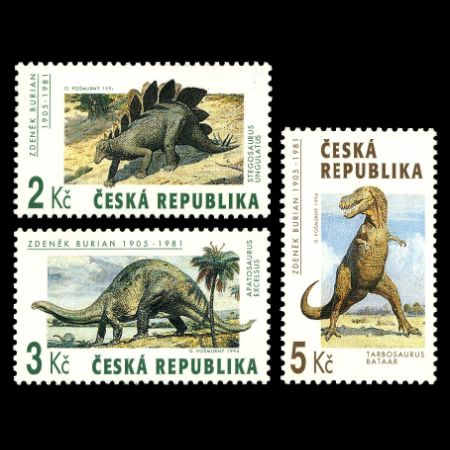
On June 1
st, 1994, Post of Czech Republic issued a set of three dinosaur
stamp, based on illustrations of famous Czech paleo-artist Zdenek Burian.
Zdenek Burian (1905-1981) was a Czech painter and book illustrator whose work played a
central role in the development of palaeontological reconstructions during a
remarkable career spanning five decades.
Originally recognised only in his native Czechoslovakia, Burian's fame later spread to an
international audience, and a number of artists later attempted to
emulate his style.
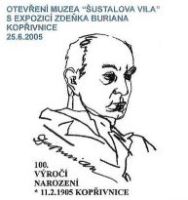 |
|
Zdenek Burian on cachet of personalized postal stationery
|
He is regarded by many as the most influential palaeo-artist of the modern era.
Burian was an extremely prolific artist whose works are estimated to number
between 15,000 and 20,000 paintings and drawings (pen and pencil).
He illustrated over 500 books (including natural history subjects and
numerous classic novels such as Robinson Crusoe, Tarzan, Plutonia)
and some 600 book covers, but it is within the fields of palaeontology
and palaeoanthropology that Burian's influence has been most notable.
Since the late 1950s and early 1960s when Burian's work became known in
the west through a series of large-format books released by the Artia Publishing House.
Numerous scholarly and popular books on prehistoric life have featured his work,
either as originals or as art based closely on them.
Burian worked in initial cooperation with university palaeontologist Josef
Augusta from 1938/39 (during World War II all universities in
Czechoslovakia were closed due to the German occupation) and
subsequently (following Augusta's death in 1968) with Zdenek Spinar, painting accurate
and magnificent reconstructions representing all forms of prehistoric life from many
parts of the globe, from the earliest invertebrates to a vast array of fish, amphibians, reptiles,
mammals and birds, as well as panoramic vistas of the landscapes in which they lived.
Close to 500 prehistoric images were painted by him between the early 1930s
and the late 1970s.
Whilst some of Burian's earliest palaeo works depicting North American species
were inspired by the pioneering American palaeo-artist Charles R. Knight
(see for example, his first renditions of
Stegosaurus and
Brontotherium), partly because Burian lacked access to skeletal
material for such reconstructions, Burian's work was less stylised and
more convincing with respect to both the subjects and their landscapes,
and soon became highly regarded amongst palaeontologists, especially in Europe.
Previous palaeo-artists had often produced speculative works
reflecting 19
th century views of large dinosaurs as lethargic reptiles
akin to giant lizards with sprawling limbs, but Burian convincingly
painted them as active animals with parasagittal (mammal or bird-like)
limb-movement and musculature.
Products and associated philatelic items
References
Acknowledgements
Many thanks to Dr.
Peter Voice, PhD Department of Geological and
Environmental Sciences, Western Michigan University, USA, for his help in finding
information and for review of a draft of this article.
